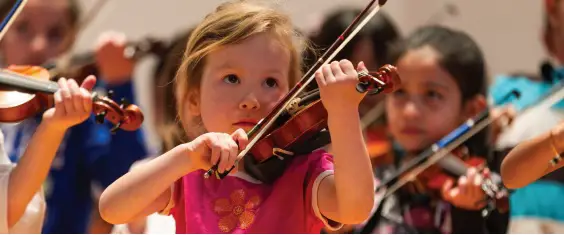
Music Lessons for piano, guitar, violin, drums, singing, and other instruments. Find music lessons, theory lessons, review of top music learning software, and method books for various musical instruments.
Music Lessons: Ways to Learn, Costs
Popular learning methods include taking traditional lessons from a teacher, or you may use Method Books, Video courses and Learning Software.
Group Lessons vs Private Lessons
When taking traditional lessons from a teacher, Private lessons are better to make quick progress as the student gets individual attention and can learn proper techniques right from the beginning.
- You will be under pressure to practice regularly. You can ask queries, clear concepts on the spot.
- Lot of teachers have annual student recitals where you get an opportunity to play for an audience, which is very good for your confidence.
- You will also know about some really good books on the subject which the teacher must have acquired over the years.
Private music Lessons however can turn out to be a bit expensive. You may have to travel to the teacher’s place. You may not have the flexibility to learn at your own suitable time.
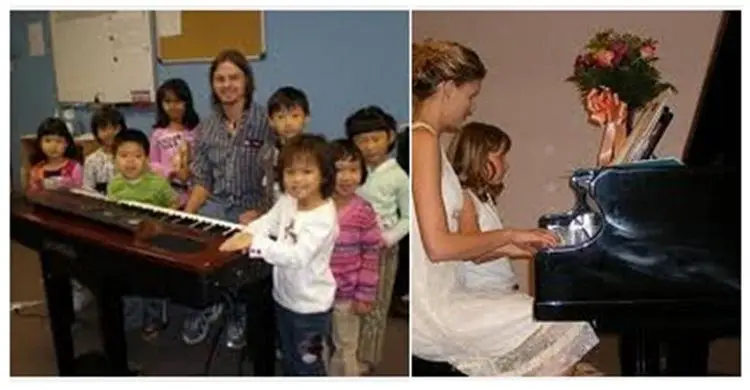
In Group Lessons, students are relaxed and feel comfortable when they realize there are many like them, who are starting from scratch. You meet friends who share a common interest. Group Lessons usually tend to be cheaper.
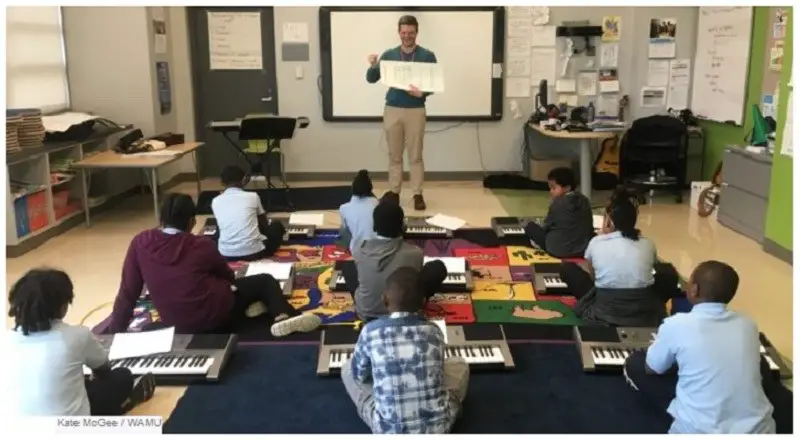
You can even take music lessons online, right from your own home.
If you’re unable to find a music teacher (for learning piano, guitar or any other instrument) who can come over to your house, or if you don’t have the inclination to travel to your music teachers place, you may consider taking online lessons.
Many music teachers nowadays impart music lessons online (using video conferencing software) and this is becoming a popular method for those who want to learn to play the piano (or other instrument) online.
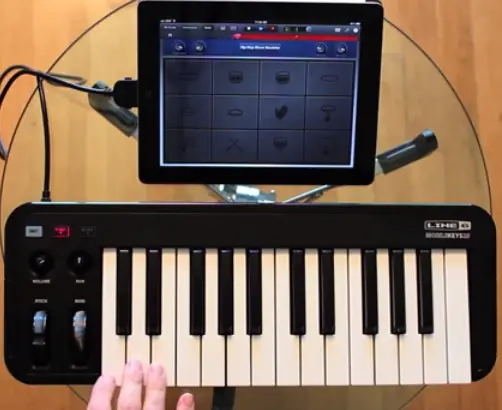
You will need a computer/laptop. It doesn’t have to be of the highest configuration. However, if you intend to use music production software or notation software in future, you will need a computer with better configuration. If possible, get a laptop with bigger screen size so that you can clearly see.
Once you’re past the beginner stage, you may opt for private lessons, depending on your needs and aspirations.
Cost of Music Lessons
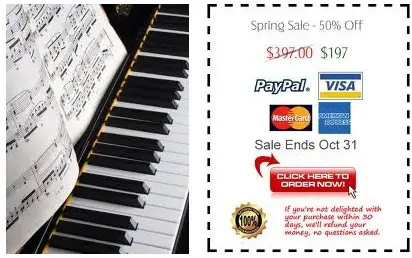 Cost of music lessons can vary greatly from region to region. Most teachers teach from home, but there are some who rent a studio to teach.
Cost of music lessons can vary greatly from region to region. Most teachers teach from home, but there are some who rent a studio to teach.
In general, private lessons tend to cost more then group lessons. The cost of piano lessons also depends on the experience, qualification, area of expertise, and popularity of the teacher.
Usually, you pay per lesson/class for private music lessons in most western countries but in many Asian countries you pay per month.
If you are not sure, visit a local musical instrument store and to get references of music teachers and to get an idea of music lessons cost.
Learning to Play An Instrument: Understand the Process
Here’s how music lessons work, how it can be made more effective and enjoyable.
Get an Instrument
You need to first find a decent instrument for practicing. Once you have it, you must make sure that your instrument is setup and tuned properly (especially for acoustic instruments) before you start playing/practicing.
Music Teacher
You must find a music teacher who is passionate about teaching, and is able to come up with creative ways to engage the students. A good music teacher is able to explain the subject matter in differing styles and ways.
Learn about Music Theory
When you learn to play any music instrument, you have to start with the basics. You need to learn to play the notes, develop a sense of timing, and learn more on music theory.
Learn basic chords: You can play many songs using just a few chords.
Learn songs at low tempo first.
Fingering and Finger Exercises
You will need to train your fingers to do more, than what it usually does. You will need to do finger exercises and you will also need to learn to use the right fingers while playing.
Most beginner books and learning materials mention the finger numbers below the notes on the sheet. Pay close attention to the numbering of the fingers and use those fingers only to play those specific notes.
Pay Attention to the Posture
Maintaining the right posture is also very important when you’re playing the instrument. Every instrument requires you to hold the instrument differently and using the right posture, and play it using the right techniques.
Sight-Reading is Not Difficult
Learn the basics of sight-reading and focus only on one clef (the melody clef) to begin with. You can then move on to two clefs together.
Read: How to Improve Sight Reading
Practice Daily
Practice as often as you can, preferably daily, so that you keep building on your learnings. It also gives your fingers sufficient time to develop.
While you might be tempted to learn more of your favorite songs, do keep on perfecting the songs that you know.
Develop a Learning Attitude
Finally, if you really want to become good at your instrument, eventually you should aim to develop an attitude of ‘learning’. Take lessons that challenge you, you just cannot be playing the same thing again and again all the time. You should develop an inclination to learn more about music, theory, techniques, and how the star musicians (in your chosen instrument) have come so far.
Music Lessons for Various Instruments
Useful Music Lessons & Resources
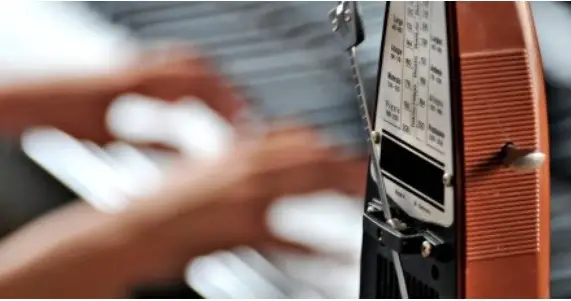
Checkout these top-quality metronomes: You will need one for practicing the piano or for any other musical instrument.
Music theory
Music Theory: Learn about the building blocks and structures that make up music. Learn basics as well as advanced topics.
Sheet Music & Tabs
While instruction books have some songs and some popular pieces, its main objective is to teach you how to play, and so it may not include many popular songs which you may be interested in playing.
Sheet Music help students learn their favorite songs, and also helps improve music reading skills.
Role of Parents
As parents, your role is more than just paying for the lessons.
You will have to make sure that your kids practice regularly, otherwise, everybody’s efforts will be wasted.
Talk to your kids regularly and find out what they feel about their lessons. With your feedback, the teacher can alter the lessons accordingly to make it more enjoyable to your kids.
If you child has been practicing regularly and you still see no progress, you may consider changing the teacher. But be sure that this is indeed the case before you take that decision. Most of the time; it’s the students who lack the effort and dedication.
Music Workshops and Masterclasses
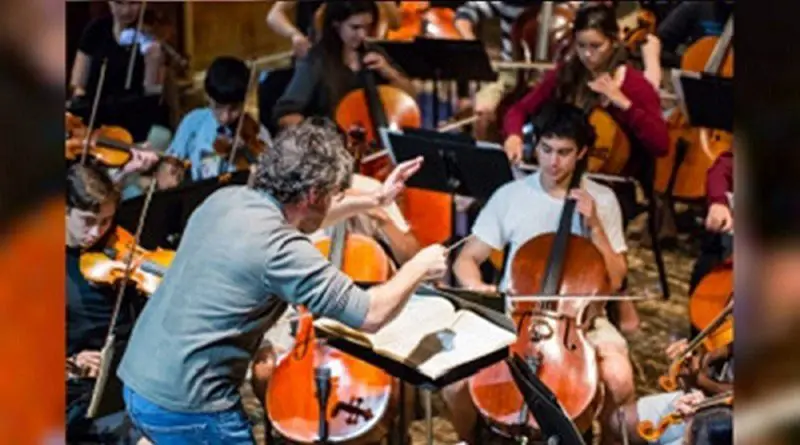
A music workshop is an event where students gather for a few days for a complete immersion course on learning music. These workshops for beginners have a combination of activities such as learning the basics of your instrument, music theory, group playing.
If the workshop is for intermediate level players, then the workshop may include activities such as improvisation, songwriting, advanced music theory, technology, masterclasses and more.
These workshops get you charged up, you benefit from the teachings of experts, and it’s a place where you can make friends and potential collaborators.
Master Classes are ideally suited for intermediate players.
A master class is presents by a master, who is a well-recognized performer, musician or an educator. You can learn how masters practice, what chords and riffs they play; you can also learn a lot from their experiences and the hurdles they faced in their professional career.
Learning Multiple Musical Instruments
Having good knowledge about various musical instruments always helps, but it is not easy to learn to play multiple musical instruments.
But then there could be various reasons for you to be interested in music lessons of other instruments.
You may want to improve your singing besides learning an instrument. Some feel they can comfortably play a couple of music instruments.
So if you play the keyboards, you may want to have a go at guitar. Most guitar players do learn to play keyboards so that they can use it as a controller.
If you intend to start a music school someday or get into music-related business, it might help to know how to play various musical instruments.
So, keep visiting KeytarHQ.com as we have high-quality content and this is a great resource to improve your musicianship and take your playing to the next level.
KeytarHQ editorial team includes musicians who write and review products for pianists, keyboardists, guitarists & other musicians. KeytarHQ is the best online resource for information on keyboards, pianos, synths, keytars, guitars and music gear for musicians of all abilities, ages and interests.
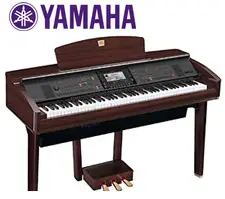
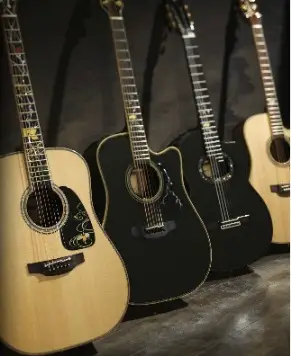

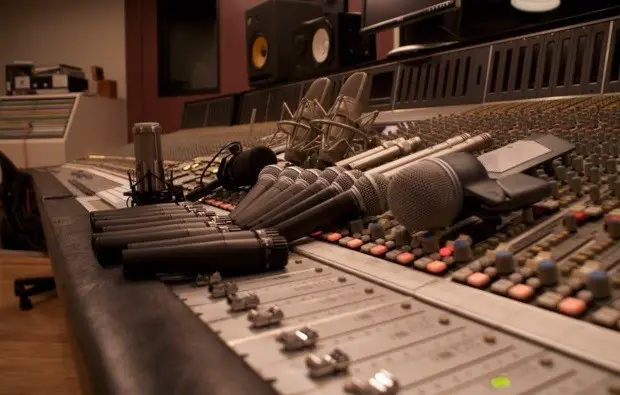
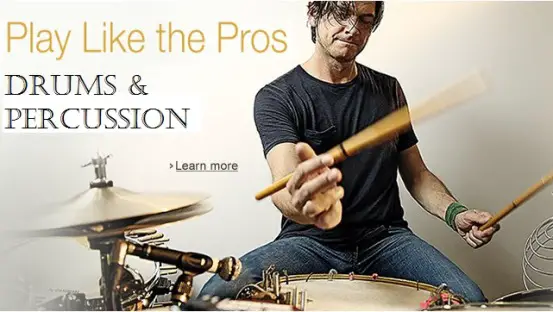



Leave a Reply